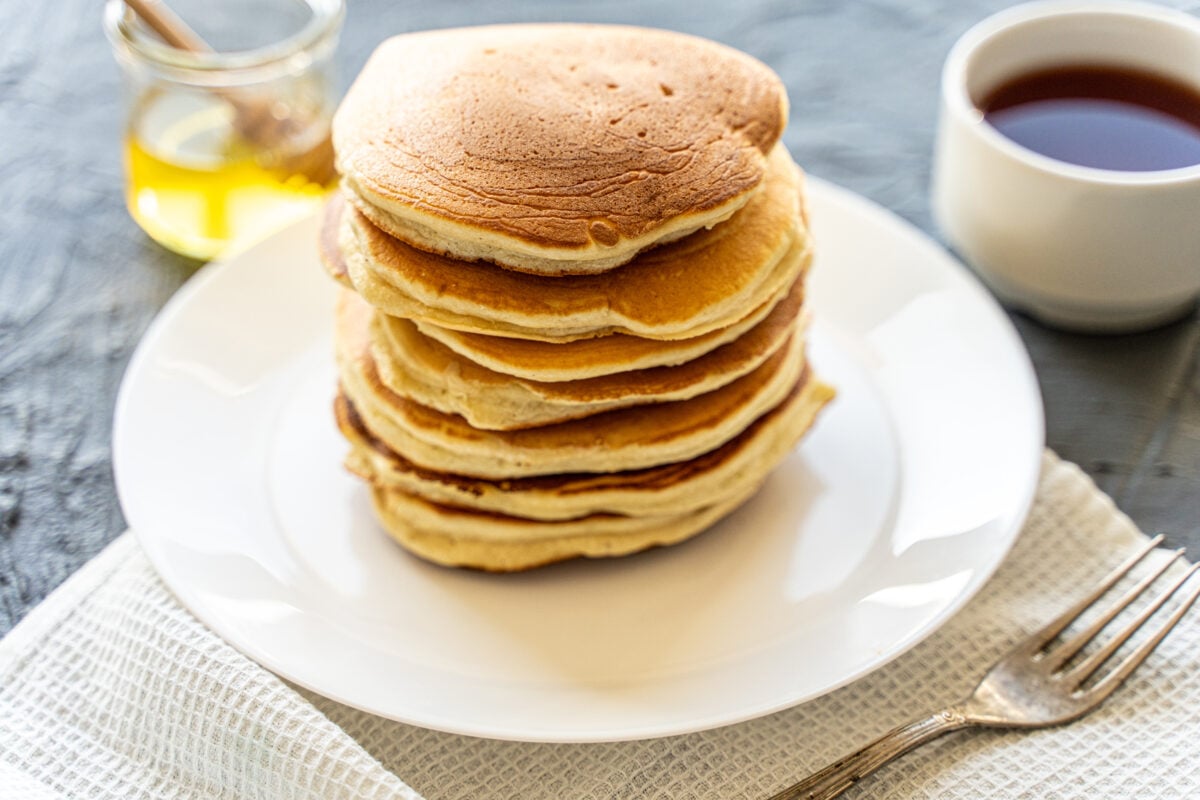From uk.news.yahoo.com
After months of anticipation, the UK has welcomed its first ever plant-based egg, as the American brand Just Egg officially launches across the Atlantic.
Already a household name in the US, the product is crafted from mung beans and promises to mimic traditional eggs in look, cook, and taste – all without the need for chickens. Its timely arrival caters to a steadily growing number of Britons exploring more sustainable, allergy-friendly, or plant-forward diets.
“We think there’s a huge pent-up demand for it,” says Matthew Glover, founder of Veganuary and chair of the Vegan Food Group, the team behind the UK rollout. “There’s not been anything like this on the market so far. So we’re very excited to launch it into the UK.”
Although headlines around the plant-based food industry often focus on falling sales or investor pullback, Glover sees that as a misread of the bigger picture.
“It’s challenging times,” he admits, “there’s been a lot of misinformation that has been shared. But in the US, Just Egg is very much a growing product. It has 99% of the plant-based egg market […] it’s one of the fastest-growing egg brands out there.”
The ‘egg’ comes in a carton (Eat Just, Inc./PA)
And while veganism is often painted as a niche movement, this product is not just for the animal-free faithful: “[This] product is really for everybody, not just vegans, it’s for anybody that’s plant-curious,” says Glover, “there’s a lot of people that are allergic to eggs, so it’s perfect for those individuals.”
Diet restrictions due to intolerances or allergies is predicted to account for a lot of Just Eggs market.
Nutritionist and author Rhiannon Lambert sees it as a potential game-changer for people with allergies or restrictions and anyone hoping to improve their health without giving up familiar comfort foods.
The UK has some of the highest rates of allergic conditions in the world, with a staggering 44% of British adults suffering from at least one allergy, with 1 in 20 developing one to eggs. “So many people have different dietary requirements, and we’re looking for something that cooks in the same way, that’s better for the environment,” explains Lambert.
Lambert’s focus is on both nutrition and accessibility. “What’s been lacking in the past with alternatives for eggs is the fact that it’s really hard to get the texture that cooks well and get enough protein,” she says, “and per serving, this has 13 grams of protein.”
This is the closest a plant-based egg has been able to get, containing around 5.9 grams of protein ‘per egg’ compared to 6.3 grams in a chicken egg.
While nutrition is a key concern, many opting for this plant-based alternative will be doing it more for the planet as opposed to their health.
The egg industry has recently made moves to develop carbon-neutral farming methods, like off-setting the emissions produced during the production process, but experts remain unconvinced.
“Over 40 percent of the pollution in the UK rivers comes from poultry – that’s both egg production and chicken production,” says Glover. “We don’t have any of those associated pollution problems with a vegan egg.”
For Lambert, the environmental conversation goes beyond carbon offsetting. “It’s the land use that comes with eggs as well,” she says. “This has been made from mung beans […] we’re looking at water saving every year for the planet, which is exceptional.”
Abigail Nelson-Ehoff, who leads marketing at Vegan Food Group, says “it takes 53 gallons of water per egg to be able to produce it. That’s from the feed that’s needed – not just that individual chicken, but all of the feed and the water that can go into growing the feed.”
Instead of importing the product from the US – which would inflate its price and carbon footprint – the company has started production in Europe.
“That allows us to make sure we’re investing in price from our side,” Nelson-Ehoff explains. “We can bring this to the consumer at a price that is feasible […] it will be £3.99 for a pack.”
Despite the boom-and-bust narrative around plant-based products, Nelson-Ehoff sees this moment not as a dip, but a transition. “We’re probably the youngest category […] and if you think of that bell curve of early adopters, we feel we are at the point where it starts to plateau into more of a regular state.”
Flexitarianism – or simply eating more plants without going fully vegan or vegetarian – continues to trend upward. And for Nelson-Ehoff and her team, the arrival of a credible egg replacement offers more than a novelty.
“Talking to parents with children who are egg intolerant […] people who, from a lifestyle point of view, can discover that the health side of things is going to be really exciting,” she says. “Certainly, bringing this to the vegan community is amazing – but this is a product that could mean something to so many more people.”
So as Brits continue to grapple with cost-of-living pressures, sustainability concerns and healthy but affordable food options, the arrival of a plant-based egg could be a timely blessing.
So whether you’re vegan, egg-allergic or simply curious about cutting down on animal products – this invention marks a significant shift in what’s possible on the British breakfast plate.
And as the conversation around sustainable food continues to evolve, this mung bean-based newcomer could well become a staple in kitchen cupboards across the country.
The proof, however, will be in the frying pan.
https://uk.news.yahoo.com/uk-first-plant-based-egg-063840699.html


.jpg)




